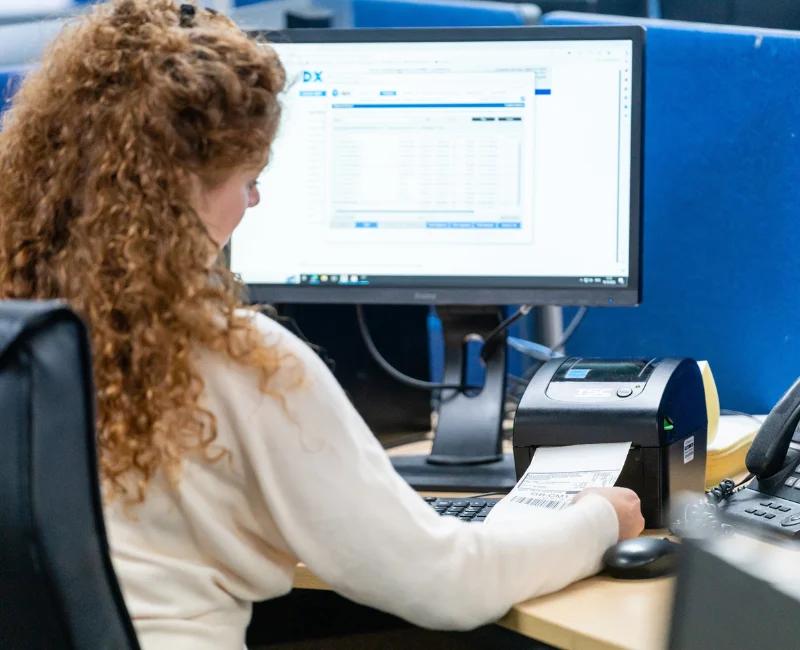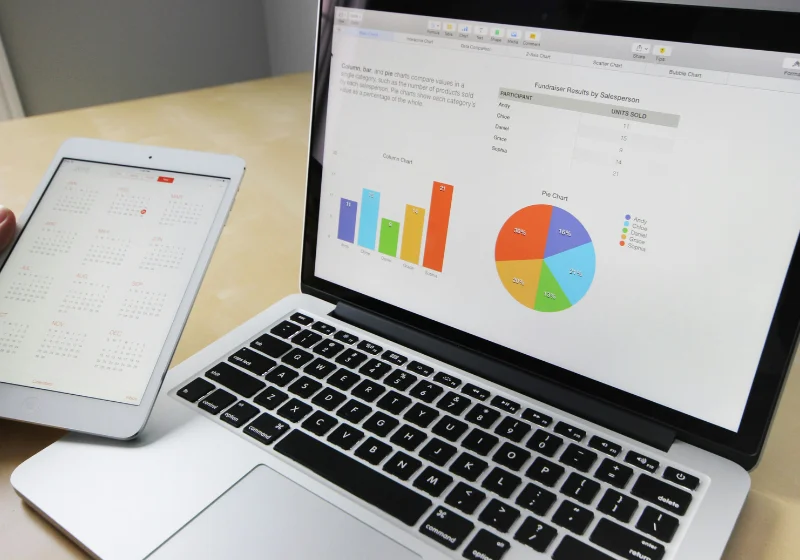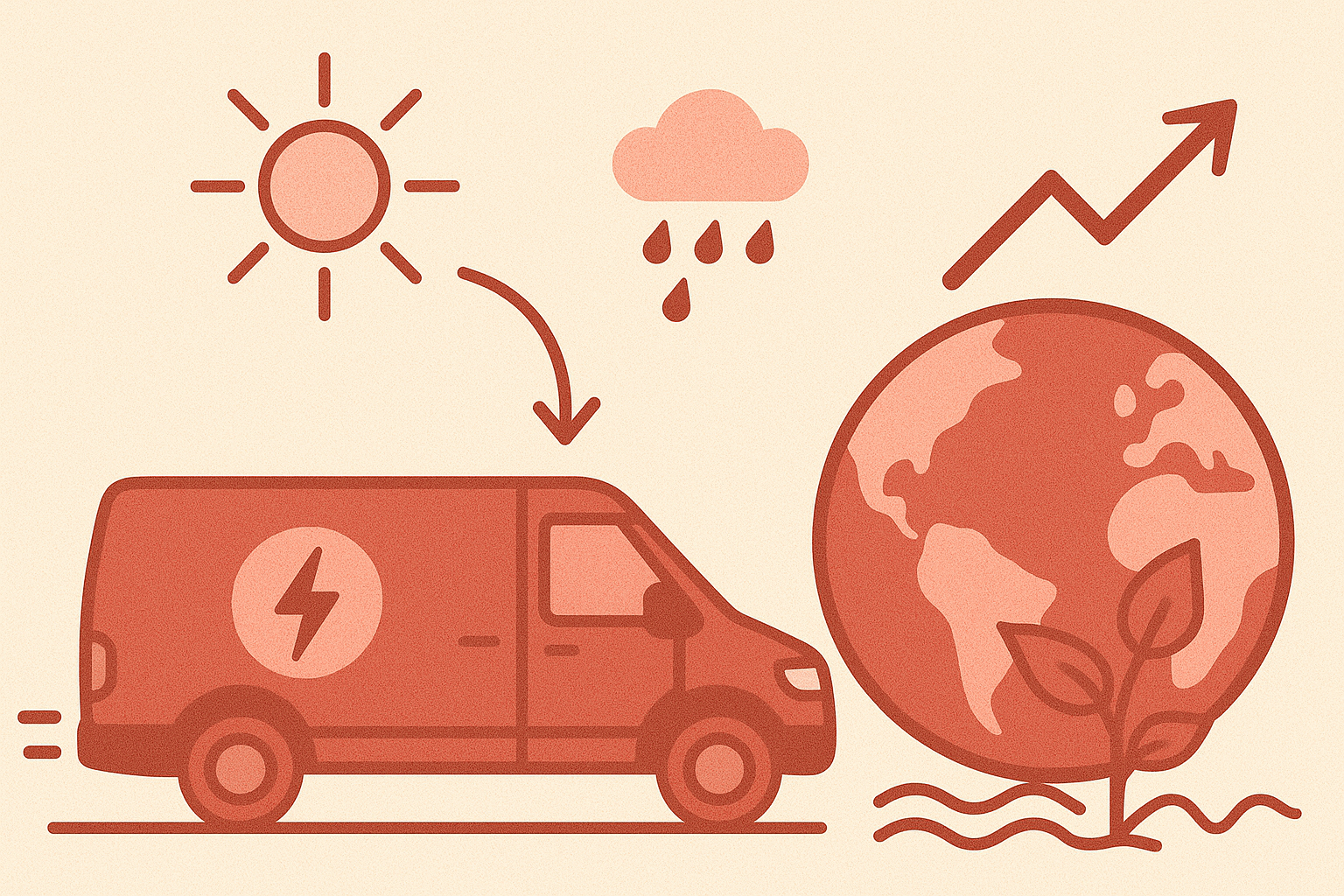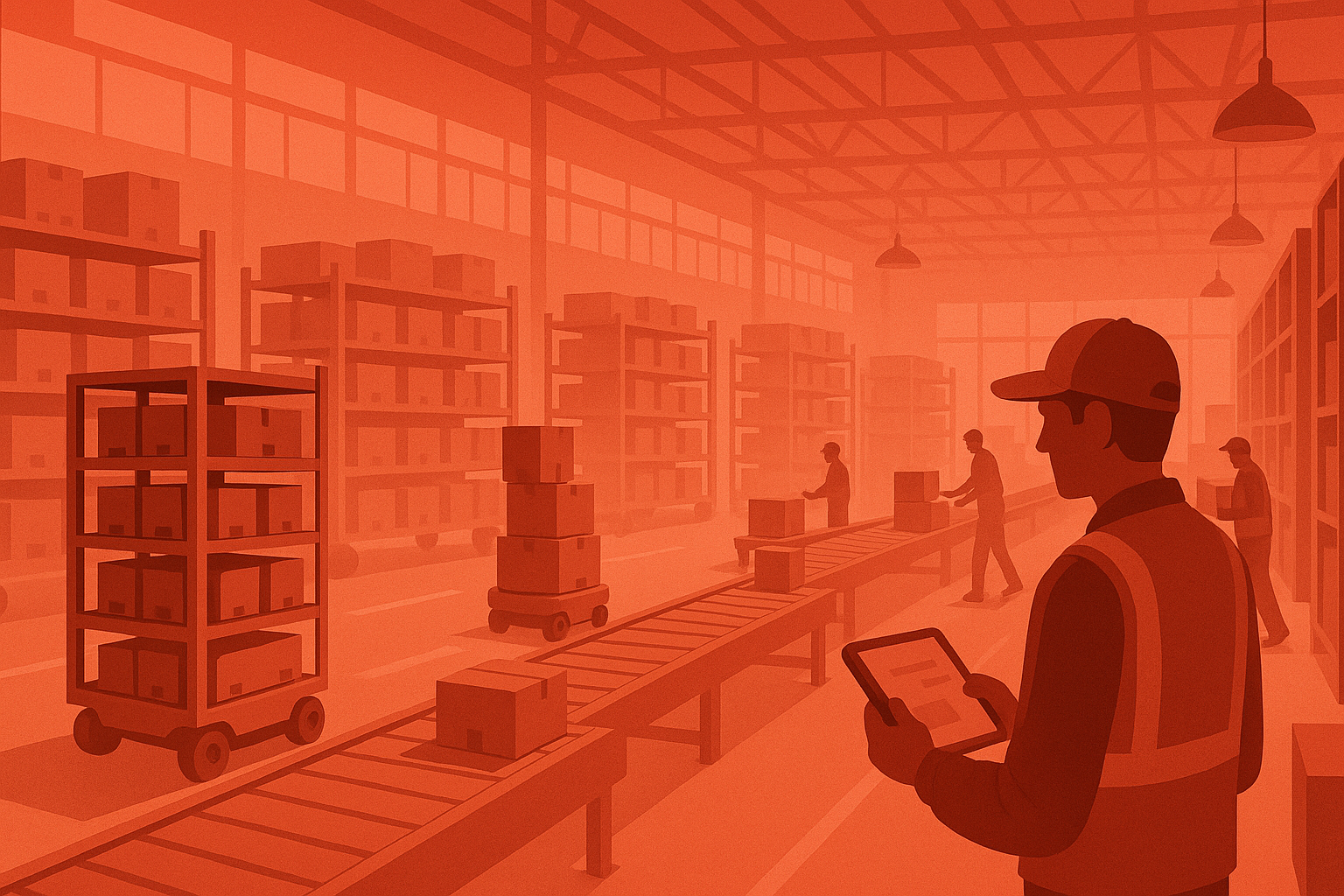As has been predicted by various parties in recent years, big data is on the rise for the logistics industry. There are many benefits of making use of big data in your company’s order fulfilment. Giving you more answers that traditional data, big data can be used in logistics for innovative problem-solving.
Big data refers to sets of data that are too large for traditional software to process. The complicated data sets can help you to tackle business problems you were unable to before. To work effectively, big data sets need to be found from trusted sources and curated. Technology for sorting big data sets is improving each year as volumes increase.

Using big data in logistics
According to the 2022 Third-Party Logistics Study, 81% of shippers and 86% of third-party logistics companies surveyed stated that big data will become a core competency of their supply chain organisations.
Useful for many stages of logistics and supply chain fulfilment, big data can help to –
- Optimise delivery routes and improve the delivery of perishables
- Access historical trends to understand customer buying cycles
- Reduce inefficiencies in warehouse management
- Organise fleet maintenance schedules & staff rotas
- Evaluate real-time data, including the weather
- Increase delivery transparency to customers
- Create accurate demand forecasts
These will all help your company to save money and deliver a better service to your customers. More transparency will help reduce any bottlenecks, benefiting all logistics and shipping companies involved in the supply chain.
Improving the last mile of delivery
Notorious for being the hardest part of order fulfilment, using big data can aid the last mile of delivery. It’s predicted that the last delivery mile accounts for a whopping 53% of your total delivery cost. Customers become frustrated when their tracking code shows ‘out for delivery’ for hours on end.
It’s no surprise that improving this part of your order fulfilment will lead to reduced costs and happier customers. Big data will give logistics companies a better understanding of the challenges delivery drivers face, such as parking in busy city environments. Real-time tracking can give you the big data needed to make your order fulfilment better, with fast delivery and optimised processes.
Optimised delivery routes and real-time tracking
One of the most beneficial improvements when using big data in logistics is optimising delivery routes. Fast deliveries are the holy grail to logistics companies, for good reason. Big data allows you to optimise delivery routes and use the right number of vehicles for order fulfilment, reducing costs. You’ll also be more likely to have happy customers as your deliveries arrive on time.
Big data can be combined with predictive analytics to account for upcoming trends, including adverse weather conditions or road closures. The idea that American UPS drivers shouldn’t turn left saves an estimated 10 million gallons of fuel per year – this discovery was made using big data and analytics. It not only saved time and fuel, but also reduced the risk of accidents.
Perishable items such as food and flowers have always been a challenge for logistics companies to deliver on time. By optimising your delivery routes and using real-time tracking, your sensitive goods can be delivered with better efficiency.

More transparent eCommerce order fulfilment
The eCommerce market is expected to rise to over 770 billion euros globally by 2026. To stand out from the competition, it’s becoming even more vital to provide good customer experiences. Located at the heart of happy customers is having a more transparent delivery process to give your customers confidence in your company.
Using big data in logistics and supply chain management can improve the traceability of products. Barcodes scanners and radio frequency devices can allow real-time data to be collected from certain products. Improved traceability and transparency mean a better tracking process throughout the delivery cycle, giving the full supply chain a better picture of what’s really happening.
By increasing warehouse productivity, accurately predicting delivery dates/times, and optimising routes, the full eCommerce fulfilment process is streamlined. This gives more profitability and customer satisfaction to eCommerce customers.
Take the first step to improve your supply chain
It’s clear to see how using big data in logistics can improve your overall company performance, reduce costs, and serve your customers better. As an eCommerce business, outsourcing your order fulfilment and logistics is a great first step to achieving a more efficient and cost-effective supply chain. Contact us to speak to an order fulfilment specialist.



